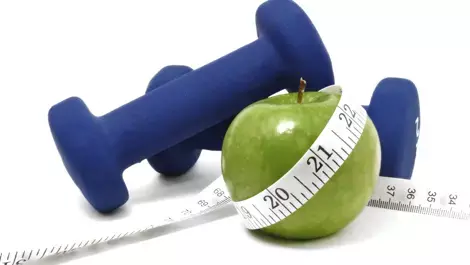- Home
- Medical news & Guidelines
- Anesthesiology
- Cardiology and CTVS
- Critical Care
- Dentistry
- Dermatology
- Diabetes and Endocrinology
- ENT
- Gastroenterology
- Medicine
- Nephrology
- Neurology
- Obstretics-Gynaecology
- Oncology
- Ophthalmology
- Orthopaedics
- Pediatrics-Neonatology
- Psychiatry
- Pulmonology
- Radiology
- Surgery
- Urology
- Laboratory Medicine
- Diet
- Nursing
- Paramedical
- Physiotherapy
- Health news
- Fact Check
- Bone Health Fact Check
- Brain Health Fact Check
- Cancer Related Fact Check
- Child Care Fact Check
- Dental and oral health fact check
- Diabetes and metabolic health fact check
- Diet and Nutrition Fact Check
- Eye and ENT Care Fact Check
- Fitness fact check
- Gut health fact check
- Heart health fact check
- Kidney health fact check
- Medical education fact check
- Men's health fact check
- Respiratory fact check
- Skin and hair care fact check
- Vaccine and Immunization fact check
- Women's health fact check
- AYUSH
- State News
- Andaman and Nicobar Islands
- Andhra Pradesh
- Arunachal Pradesh
- Assam
- Bihar
- Chandigarh
- Chattisgarh
- Dadra and Nagar Haveli
- Daman and Diu
- Delhi
- Goa
- Gujarat
- Haryana
- Himachal Pradesh
- Jammu & Kashmir
- Jharkhand
- Karnataka
- Kerala
- Ladakh
- Lakshadweep
- Madhya Pradesh
- Maharashtra
- Manipur
- Meghalaya
- Mizoram
- Nagaland
- Odisha
- Puducherry
- Punjab
- Rajasthan
- Sikkim
- Tamil Nadu
- Telangana
- Tripura
- Uttar Pradesh
- Uttrakhand
- West Bengal
- Medical Education
- Industry
Clinical practices to be avoided in pediatric neurology: AAP

The American Academy of Pediatrics has issued a list of five practices to avoid in pediatric neurologic surgery as part of the American Board of Internal Medicine's Choosing Wisely campaign.
The pediatric neurosurgery Choosing Wisely topics were chosen after discussion among the Section on Neurological Surgery (SONS) Executive Committee members regarding the most common pediatric neurosurgery issues and treatments general pediatricians see in their practices. Various expert committees and sections of the AAP reviewed and approved the list. The AAP Executive Committee then granted final approval of the list.
Among them, the key highlights are-
- Do not routinely perform imaging to evaluate infant head shape, as it unnecessarily exposes the child to radiation. Additionally, positional plagiocephaly and most craniosynostosis cases can be detected via clinical examination. "Most craniosynostosis presentations can also be discerned on clinical examination. Imaging may be obtained by specialists to make the diagnosis in complex cases and, if necessary, for surgical planning." The team opined.
- Do not routinely perform imaging or elective procedures that call for sedation in very young children with low-risk asymptomatic lesions (for example, small rubbery scalp masses that represent dermoid cysts).
Small rubbery scalp masses representing dermoid cysts or shallow midline sacral dimples do not routinely require intervention as a young infant. Routine magnetic resonance imaging requiring anesthesia is typically not recommended. Given the US Food and Drug Administration's Drug Safety Communication on pediatric anesthesia warning that general anesthesia and sedation drugs used in children younger than 3 years for anesthesia of more than 3 hours or repeated use of anesthetics may affect the development of children's brains, risks and benefits of elective imaging or procedures should be carefully weighed.
- Do not routinely order computed tomography or magnetic resonance imaging for developmentally normal infants with macrocephaly that's clinically asymptomatic. When imaging is indicated, head ultrasonography should typically be considered as the first-line test for infants with an open fontanelle.
For the full article follow the link: AAP's Choosing Wisely list (Free)
Primary source: American Academy of Pediatrics
Dr Satabdi Saha (BDS, MDS) is a practicing pediatric dentist with a keen interest in new medical researches and updates. She has completed her BDS from North Bengal Dental College ,Darjeeling. Then she went on to secure an ALL INDIA NEET PG rank and completed her MDS from the first dental college in the country – Dr R. Ahmed Dental College and Hospital. She is currently attached to The Marwari Relief Society Hospital as a consultant along with private practice of 2 years. She has published scientific papers in national and international journals. Her strong passion of sharing knowledge with the medical fraternity has motivated her to be a part of Medical Dialogues.
Dr Kamal Kant Kohli-MBBS, DTCD- a chest specialist with more than 30 years of practice and a flair for writing clinical articles, Dr Kamal Kant Kohli joined Medical Dialogues as a Chief Editor of Medical News. Besides writing articles, as an editor, he proofreads and verifies all the medical content published on Medical Dialogues including those coming from journals, studies,medical conferences,guidelines etc. Email: drkohli@medicaldialogues.in. Contact no. 011-43720751


